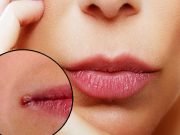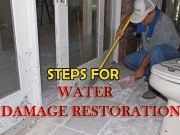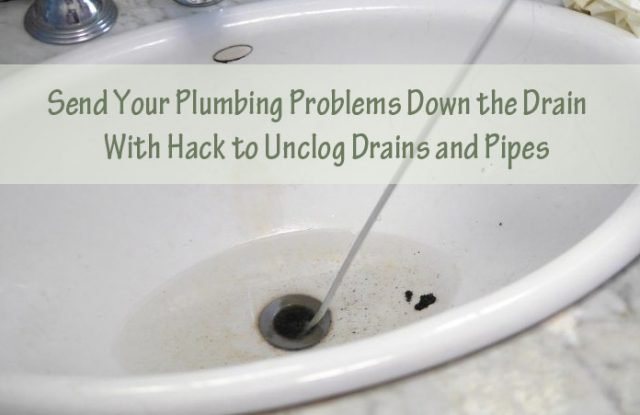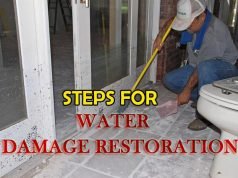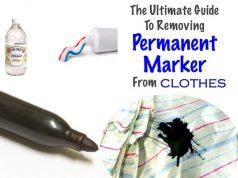Kitchen and bathroom are the two most important places of any house. Any plumbing issue here can disrupt the entire household. Leaking pipes and clogged drains are among the most common problems that almost everyone has had to deal with. Small chunks of food particles, detergent, hair and other debris often block the sink and water pipes, causing a pool of dirty water to collect and contaminate the basin.
Calling a professional plumber can cost quite a lot; however, armed with the proper tools and cleaning equipment you can easily unclog the drains yourself. Discussed below are the top methods used to help you prevent clogged drain issues for the times to come:
What Causes Drains To Clog?
Before you begin figuring out the methods to unclog a shower drain you have first to find out the cause behind it. From the kitchen sinks to the basins in the bathroom, every corner of your house is prone to plumbing issues such as bathroom sink leakages and clogs. Strands of hair, soap scum, food particles, and excessive oil or grease are only some of the items that block the water passage, causing the drains to clog. Using a strainer or a drain mesh reduces the risk of debris accumulation and drain clogging considerably. You can also visit the URL here to learn about the recurring plumbing issues and its solution.
Standard Techniques for Unclogging Drains
Cleaning a clogged drain is no easy feat, however, with the right tools, it is not an impossible task either. Why take the trouble of calling in a professional plumber when you can take care of the problem yourself? Leakages and clogging is an inevitable occurrence; however, with some simple yet effective precautions, you can easily delay the process considerably, and get rid of the clogging once it happens.
Everyone is aware of the warning signs. The water takes a long time to drain out from the sink. The soapy water often pools at your feet in the shower. Moreover, there is this unpleasant odour of decay in the air that you just cannot ignore. Hair, soap suds, detergent, and dirt, are among the frequent blockages clogging the drains of your bathroom and kitchen.
Mentioned below are the top drain-cleaning techniques that don’t require any technical skill or expertise:
Plumbing Tools
Want to clean out the drain yourself? Plumbing tools and equipment come in very handy. Mentioned below are some standard tools and cleaning setups that you can find in any hardware store:
Plunger
A plunger comes in very handy in clearing out the tiny food particles and hair that gets stuck in the drain pipe of a fully clogged drain. It works on objects that get stuck in the p-trap or the curved pipe that is installed beneath your sink.
Splash some water in the surrounding area to clean out the mess, and then fill the tub with warm water before using the rubber plunger to suck out the accumulated debris inside. The device dislodges the food particles inside the pipes and rinses them down the drains.
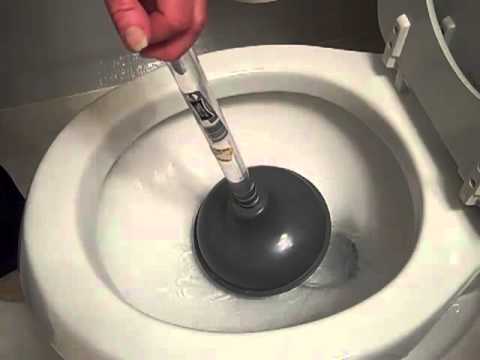
Long Wire Hook
The long wire hook is another plumbing tool that can be used to remove hair strands and small particles from kitchen sinks and the bathroom basins. The setup comprises of a long wire that is bent on one side into a hook using a plier. The hook is then gently inserted into the clogged drains to pluck out the debris that has collected inside. The long wired hook can reach the corners of the drain, pulling out bunches of hair strands and soap effectively. Ensure that you are wearing rubber gloves and a face mask before you begin the task.
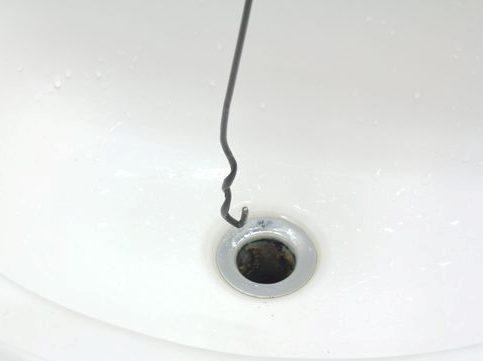
Cable Auger
The cable auger or the “Drain Snake” is another useful tool to dislodge clogs and clean out the debris. It is a long flexible steel wire that is wound around a spool and fitted into a high hand crank. A standard 25-foot cable auger is sufficient to clean out a household drainage. A closet auger, on the other hand, is specially designed for cleaning toilets and can be bent at an unusual angle for better flexibility and unclogging.
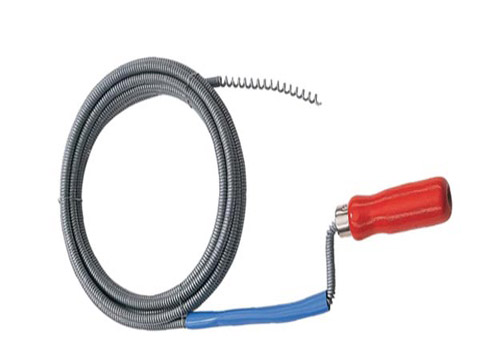
Natural Household Remedies Unclog Drains and Pipes
Other than the plumbing tools, you can also use the chemical cleaning detergents and bleach to wash away the dirt and grime collected on and inside the drains. However, the toxic chemicals can be hazardous to the environment. Mentioned below are some natural household remedies for cleaning out the drains.
The Bent Wire Hanger
A wire hanger is a standard item that can be found in almost every home. Take standard length coat hanger and try straightening it out the best you can. You can use pliers or other tools for the process. Once the wire is straightened, you can easily insert it inside the clogged drains and fish out the debris that has accumulated inside. Remove the drain cover and insert the hook inside and scoop out the hair strands and particles. Pour a lot of lukewarm water over the now clean drains for the remaining grime to flush out.
Wet and Dry Vacuum
The wet and dry vacuum cleaner is another smart tool for unclogging drains. Set the tool for cleaning out liquid waste, then cover the vent to reduce the risk of any external damage to the device. Next create a tight, reliable seal around the drain using a plunger head or any other equipment. Set the vacuum to its highest power setting to suck out the hair strands and grime from inside the drain.
Baking Soda and Vinegar
A mixture of baking soda and vinegar is another effective household remedy for cleaning out the drains. Add equal proportions of baking soda and vinegar (1/3 cup each to be precise) and mix it well. The concoction immediately produces a fizz, pour it down the drain and leave it for a few hours. The next day washes the drain with lukewarm water.
Boiling Water and Salt
Pouring down a mixture of hot boiling water and salt over the drains slowly and then scooping out the debris is perhaps the easiest and quickest solutions for unclogging the sink. Mix ½ cup of salt to ½ cup boiling water and pour it down the blocked drain. The salt and baking soda composition create a chemical reaction strong enough to remove the nastiest of grime.
Caustic Soda
Caustic soda or sodium hydroxide is a powerful compound that can remove the most stubborn stains and debris accumulation. Add 3 cups of caustic soda (you can easily get some in a local hardware store) to ¾ gallons of cold water. Stir the mixture well with a wooden spoon and pour it slowly down the drain once the chemical starts to heat up and fizz out. Leave the mixture for about 20-30 minutes before flushing it out with hot water. However, wear rubber gloves and a face mask as the chemical is dangerous for the skin.
Dish Detergent
Dish soap is another useful product that can be used for cleaning the drains and flushing away the debris inside. Pour about ¼ cup of dishwashing liquid or detergent in a bowl and pour it gently inside the toilet drains. The cleaning chemical works as a lubricant, gently breaking down the greasy residue. Leave it for about 30 minutes before pouring hot water and flushing out the soapy dirty liquid down the drain. Repeat the whole process, if necessary.
Biological Enzyme Cleaner
Natural enzyme cleaners such as Bio Kleen and Earth Enzymes are current drain cleaning products that work well on organic waste such as food particles, hair strands, and grease. Pour some of the mixtures into the drains and leave it overnight (it is best you do not use the sink or the basin in that duration). The enzyme contains bacteria that eat through the organic debris and is very useful in cleaning out septic tanks, bathroom drains and kitchen sinks.
How To Protect Your Drains From Clogging?
Cleaning out the drains is not an easy job. Also, there is no permanent solution; clogging is an inevitable fate for any drain or kitchen sink. However, you can take some precautions to slow the process. Listed below are some precautionary measures that can slow down the clogging process and enhance the durability of your drainage system:
- Avoid throwing in grease, hair strands, minuscule food particles or any other item that might cause blockages down the drain.
- Never force the debris to flush down the drain by pouring hot water directly on it. It will only cool down and clog the drain further.
- Install a hair filter and a wired mesh in the kitchen drain for collecting the dirt, oil and other debris.
- Flush the kitchen drains once a month with a mixture of salt and hot water.
- Also, sprinkle some baking soda or vinegar onto the drains to remove the foul odor and greasy stains off the drain pipes.
The Bottom Line
The drain above cleaning methods is simple, quick and inexpensive enough to try out at home. However, in case the problem persists, consult a professional plumber to the job.








